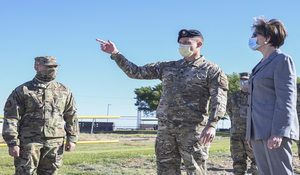How COVID-19 Illustrates Key Lessons in Mitigating Serious Risks to National Security

Speaker: Omand, D. (King’s College, London / Former Director of GCHQ)
Date: 13 August 2020
Speaker Session Summary
SMA hosted a speaker session presented by Sir David Omand (King’s College, London/Former Director of GCHQ) as a part of its SMA UK MoD Speaker Series. Sir David began by stating that the first order national security problems as a result of COVID-19 are easy to predict; however, the second and third order problems for national security are harder to predict and thus are important to consider and plan for now. Consequently, he advised that the US and UK governments expand their scope of what issues are considered “national security” issues to prepare for future hazards. Sir David argued that because of COVID-19, malign actors have had more opportunities to exploit disruption and cause trouble. Moreover, COVID-19 has affected the global economy (and continues to do so), as it has led to a one third contraction in US GDP and the deepest recession in a century in the UK. He suggested that a government’s definition of national security should to take into account both natural hazards and external threats to create a stronger form of protection for its citizens. Sir David continued by advocating the expansion of the mission boundaries of the US and UK intelligence communities, armed forces, and defense communities from their traditional definitions to defend from extreme acts of nature in addition to internal and external threats. He also discussed the psychological aspect of national security and the necessity of public trust in government while risks are being mitigated. He argued that when that trust is present, normal life can continue freely and with civilian confidence in the processes in place. However, Sir David stated that although the UK has faith in its government’s response to certain threats (e.g., jihadist threats), when it comes to COVID-19, there is a state of national insecurity. He emphasized that a lesson that the UK government must learn from the pandemic is to establish trustworthiness in quiet times rather than in times of crisis. Next, Sir David discussed the importance of clarity in doctrine followed for civil emergencies and mirroring the same decentralized decision making used in situations involving external threats. He outlined a system of crisis management and decision making that he recommended civil analysts and policy makers use called SEES. He stated that situational awareness, explanation and estimation, and strategic notice (SEES) are all necessary to mitigate risks in real time and prepare for risks in the future. In addition, Sir David underscored the utility of “warning” senior leaders if there are significant risks or errors happening in policy making. To conclude, Sir David reiterated that national security needs to be redefined to include natural hazards, as well as external threats, and reemphasized the psychological importance of public trust in government.
Speaker Session Recording
Note: We are aware that many government IT providers have blocked access to YouTube from government machines during the pandemic in response to bandwidth limitations. We recommend viewing the recording on YouTube from a non-government computer or listening to the audio recording below, if you are in this position.
Comments